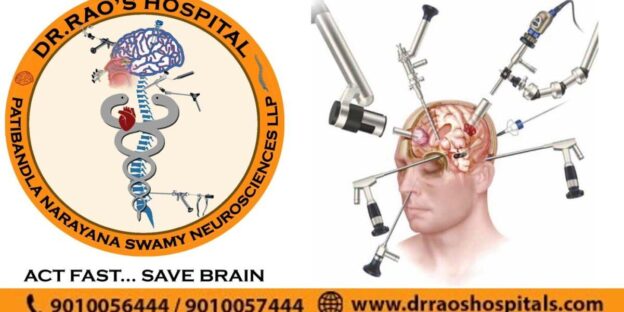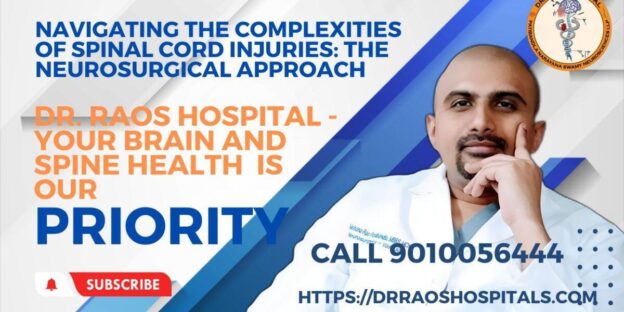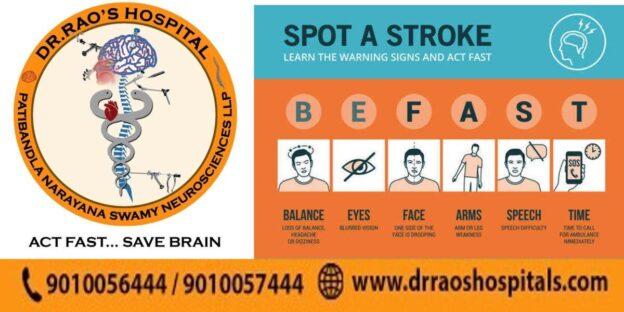Best Spine Surgeon in India Dr Rao – Minimally Invasive Keyhole Spine Surgery
Introduction
The field of neurosurgery has witnessed remarkable advancements in recent years, and at the forefront of these innovations is Dr. Mohana Rao Patibandla, the best spine surgeon in India, practicing at Dr. Rao’s Hospital in Guntur, Andhra Pradesh. With a vision to provide patients with the most cutting-edge treatments, Dr. Rao specializes in minimally invasive keyhole neurosurgery. This groundbreaking approach has revolutionized how neurosurgical procedures are performed, offering numerous patient benefits.
Rationale
Minimally invasive keyhole neurosurgery has gained popularity due to its ability to minimize trauma, reduce recovery time, and enhance patient outcomes. Dr. Rao recognizes that the brain and spine are delicate structures, and any surgery involving them requires the utmost precision. The rationale behind adopting minimally invasive techniques is to achieve the same level of surgical precision while causing minimal disruption to the surrounding tissues. This approach is particularly advantageous for patients, resulting in shorter hospital stays, smaller incisions, and less postoperative pain. Check full Video on Youtube.
Advantages
The advantages of minimally invasive keyhole neurosurgery are manifold. Patients benefit from reduced scarring, decreased risk of infection, and faster recovery times. Smaller incisions mean less damage to surrounding healthy tissues, reducing postoperative discomfort. In addition, these procedures often require shorter hospital stays, allowing patients to return to their daily lives more quickly. Furthermore, the risk of complications is reduced, making it an attractive option for many individuals seeking neurosurgical interventions.
Procedure
Minimally invasive keyhole neurosurgery involves making a small incision (the “keyhole”) through which specialized instruments and a tiny camera are inserted. This camera, called an endoscope, allows the surgeon to visualize the surgical site in real-time on a monitor. Through this minimally invasive portal, Dr. Rao can perform intricate procedures with precision. Whether addressing brain tumors, spine disorders, or other neurological conditions, this approach ensures the same level of care with the least possible disruption.
Equipment
Dr. Rao’s Hospital has state-of-the-art technology to support minimally invasive keyhole neurosurgery. High-definition endoscopes, specialized surgical instruments, and advanced imaging systems provide the tools necessary for intricate procedures. These cutting-edge technologies, combined with Dr. Rao’s expertise, ensure the best possible patient outcomes.
Post-Op Instructions
Following minimally invasive keyhole neurosurgery, patients are provided with specific post-operative instructions to aid in their recovery. These may include recommendations for rest, medication schedules, and restrictions on certain activities. Patients must adhere to these guidelines to optimize their healing process. Regular follow-up appointments with Dr. Rao and his team are also part of the post-operative care plan to monitor progress and address concerns.
Conclusion
The renowned Dr. Mohana Rao Patibandla’s Dr. Rao’s Hospital is at the forefront of this cutting-edge technique, which represents a significant advancement in neurosurgery. Patients seeking neurosurgical interventions can benefit from the numerous advantages of minimally invasive techniques, ensuring a quicker and more comfortable recovery. As the best spine surgeon in India, Dr. Rao’s commitment to excellence in care continues to make a difference in the lives of those requiring neurosurgical treatment.



